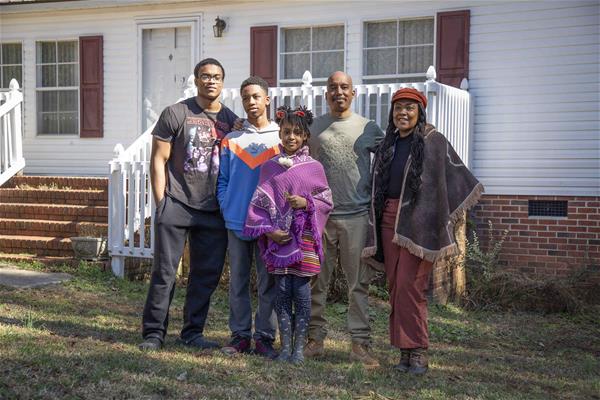
With National Homeownership Month now upon us, there's no time like the present to start thinking about how you and your family can build your wealth through your first home purchase.
For many people, diving into the home lending process can be intimidating. That's why our financial coaches are here to guide you, and our home loan officers will work closely with you throughout the process.
When working with prospective home loan borrowers, our coaches and home lending officers hear lots of questions and misconceptions about the process. If you're wondering where you are on the path to owning your first home, here are our answers to some of the most frequently asked questions:
“What's the difference between savings and credit? Do they cancel each other out?”
One of the most common misconceptions among prospective home loan borrowers is that credit and savings are the same thing. While your credit history gives lenders a better understanding of your financial behavior and how financially reliable you are, your savings affects how much you’ll be able to pay out of pocket for your portion of a down payment and closing costs.
To qualify for a home, an applicant will usually need to have some savings and to demonstrate a history of paying your bills on time, and the more diverse, positive, and older credit an applicant can demonstrate, the better their chances at qualifying. Many lenders use what’s known as “risk-based pricing,” meaning the better your credit score, the better your interest rate.
But at Self-Help, we understand the challenges that borrowers of modest income face in trying to build their savings and credit at the same time. Thanks to mortgage loan products like our Equity Boost and SH100, it’s possible to qualify for a home with established credit and minimal savings.
To help give yourself a better chance at qualifying for a home loan even before you apply, our financial coaches encourage prospective borrowers to:
Strength in these three areas — savings, credit, and DTI — help lenders know that you're already on the path to successful wealth building.
“If I pay this much for my home, what will my mortgage payment be?”
This is a tricky question for home loan officers to answer since many factors can influence your housing costs. Your housing payment may include the following:
- The loan amount (determined by your down payment)
- The interest rate (can be influenced by your credit profile)
- Private mortgage insurance (PMI), if applicable — your lender will tell you if your loan payment includes PMI
- Homeowner's insurance
- Property taxes
- Homeowner’s dues (if applicable to your property)
Loan officers can often make a rough, ballpark estimate, but it’s always better to gather your documentation and apply formally for a home loan to get exact answers for your situation. While hypothetical answers can be useful to get a general idea, your own financial documents will provide a much more accurate picture, and you might be more qualified than you might think.
When you decide to start the journey toward your first home, it’s important to keep an open mind and avoid “disqualifying” yourself. If you think it might be the right time for you to consider purchasing a home but aren't sure if you're ready, we encourage you to get in touch and speak to your local branch or call our mortgage team at 800-476-7428